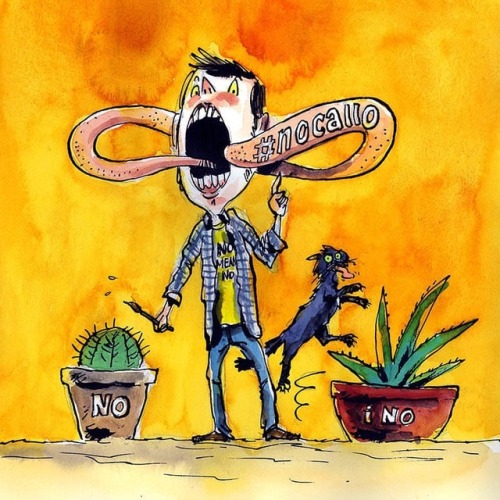#freedomofexpression
Perquè demà li pot tocar a qualsevol de nosaltres i per la llibertat d'expresió #nocallo
@apicapic #llibertatdexpressio #illustracio #freedomofexpression #illustration
Post link
Speechless
In the United States, freedom of speech and expression is strongly protected from government restrictions by the First Amendment to the United States Constitution.
Categories of speech that are given lesser or no protection by the First Amendment include obscenity (as determined by the Miller test), fraud, child pornography, speech integral to illegal conduct, speech that incites imminent lawless action, and regulation of commercial speech such as advertising.
Within these limited areas, other limitations on free speech balance rights to free speech and other rights, such as rights for authors over their works (copyright), protection from imminent or potential violence against particular persons, restrictions on the use of untruths to harm others (slander), and communications while a person is in prison. When a speech restriction is challenged in court, it is presumed invalid and the government bears the burden of convincing the court that the restriction is constitutional.
In a 9–0 decision, the Supreme Court extended the full protection of the First Amendment to the Internet in Reno v. ACLU, a decision that struck down portions of the 1996 Communications Decency Act, a law that prohibited “indecent” online communication (that is, non-obscene material protected by the First Amendment). The court’s decision extended the same Constitutional protections given to books, magazines, films, and spoken expression to materials published on the Internet. Congress tried a second time to regulate the content of the Internet with the Child Online Protection Act (COPA). The Court again ruled that any limitations on the internet were unconstitutional in American Civil Liberties Union v. Ashcroft (2002).$
Post link


